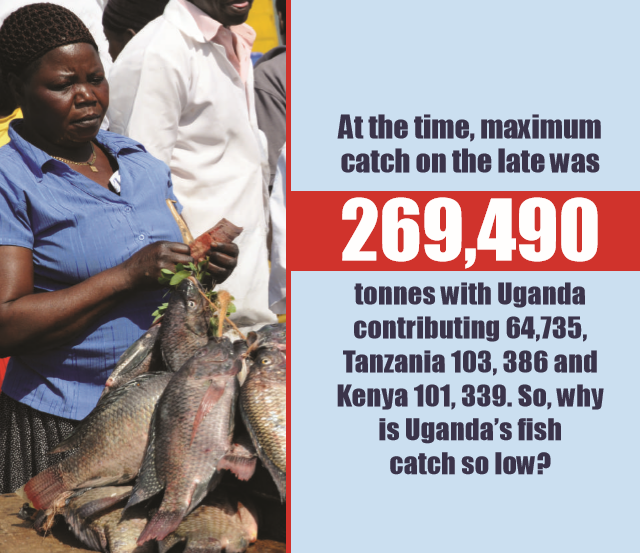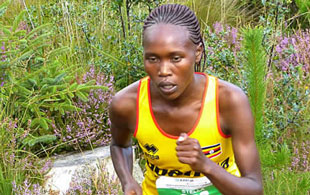
In Kampala, the Four Ways Fishing factory popularly known Ngege Limited, Tropical Industries, and Universal Foods, collapsed while Lake Bounty Ltd took over the operations of Huan Sung Ltd in Ntinda.
Fresh Water Fish Industries Limited and Tampa Fisheries Ltd in Masaka and Entebbe, respectively, have also folded during the period while Byansi Fisheries Company Ltd located in Rakai has been taken over by Aqua Perch Fish Industries Ltd, also the proprietor of the Kampala-based Lake Bounty Ltd.
These fish processing plant closures are a major headache for policy makers who make decisions based on export figures. According to these officials, the fisheries sector contributes up to 2.8% of GDP. However, if the contribution not captured in the official export figures is factored in, the officials say the sector contributes up to 6% of GDP; which is quite significant.
Poor management
But, according to investigations by The Independent, some of the plant closures have little to do with dwindling fish stocks. Edward Rukuunya, the Director Fisheries at MAAIF confirmed this without giving names.
The Independent’s investigations show, for instance, that four of the closed plants; Fresh Water Fish Industries Limited, Igloo Food Industries Limited, Marine and Agro Export Processing, Oakwood Investments limited, and Tampa Fisheries, were owned by one Kassam Moyez and others.
A source in the Ministry of Agriculture, Animal Industries and Fisheries, who preferred anonymity because he is not authorised to speak to the press, told The Independent, they were shut down four years ago over disagreements among the shareholders on failure to process enough fish.
On the other hand, Masese Fish Packers Limited, a subsidiary of Alpha Group of Companies, collapsed in 2013 following the death of its proprietor, Riyaz Kurj.
Kurji, who was a re-known rally driver, died in a crash in a rally in 2009. His family owns Uganda Fish Packers Ltd and tried to Keep Masese Fish Packers but failed.
Uganda Fish Packers Limited is also choking on a Shs19.5 billion loan got from Citibank in 2007 and 2008. The Commercial Court in Kampala ordered the fish firm to pay Shs12. 5billion with 2.5 % interest rate per year and Shs7billion with 22% interest per year from June 8, 2009 until payment is completed for the money disbursed many years ago.
The Independent also heard reports that Karmic Foods Ltd, which used to lease Unifoods and Gomba Fish Industries in Jinja, was using obsolete equipment and eventually closed the latter factory in 2012. But Robert Oloya, a plant manager at Gomba Fish Processing Factory, blames stiff competition for the closure of their plant.
“The fish business is not that bad,” Oloya says, “the problem is competition; at first, the operators thought they could run both plants here but later found out they could not sustain both factories.”
Philip Borel, the managing director of Greenfields (U) Limited and the chairperson of the Uganda Fish Processors and Exporters Association says the government’s move to award licences to many fish processing firms is to blame for the current troubles in the industry.
“When you award licence so many fish processing firms without proper management of the water resources that is what happens,” he told The Independent in interview. “We tried to inform the government not to award many licences in the early 2000’s but it did not listen to us.”
He said fishing in Lake Victoria is basically free to everyone, making it a classic example of a common pool resource that is not adequately regulated.

Borel added that illegal fishing in the country’s lakes including Kyoga, Edward, and Albert, and exports to the regional markets especially in the Democratic Republic of Congo, South Sudan, has also worsened fish shortage for the factories.
A Danish Institute for International Studies report released in 2012 dubbed “The political economy of the fisheries sector in Uganda: ruling elites, implementation costs and industry interests,” shows that the increase in the number of fish processing firms over the past decade resulted in a large demand for fish mainly Nile perch, which again increased competition among factory owners.
This ultimately led to increased price of Nile perch, inducing more people to enter the fisheries sector by investing in small vessels to meet the factories’ increased need for raw fish contributing to overfishing. Estimates by the UN’s Food and Agriculture Organisation are that fish has been shrinking not only in quantity but in size. The average Nile perch caught today has dropped from 50kg in the 1980s to less than 10kg today.
 The Independent Uganda: You get the Truth we Pay the Price
The Independent Uganda: You get the Truth we Pay the Price



